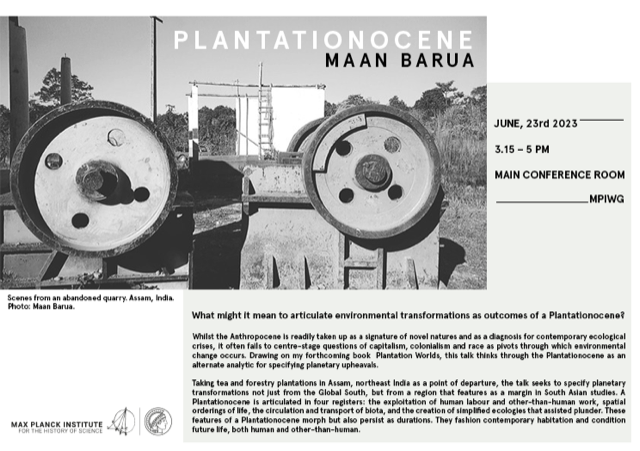TALK: Plantationocene with Maan Barua

What might it mean to articulate environmental transformations as outcomes of a Plantationocene?
Whilst the Anthropocene is readily taken up as a signature of novel natures and as a diagnosis for contemporary ecological crises, it often fails to centre-stage questions of capitalism, colonialism and race as pivots through which environmental change occurs. Drawing on his forthcoming book Plantation Worlds, this talk thinks through the Plantationocene as an alternate analytic for specifying planetary upheavals. Taking tea and forestry plantations in Assam, northeast India as a point of departure, the talk seeks to specify planetary transformations not just from the Global South, but from a region that features as a margin in South Asian studies. A Plantationocene is articulated in four registers: the exploitation of human labour and other-than-human work, spatial orderings of life, the circulation and transport of biota, and the creation of simplified ecologies that assisted plunder. These features of a Plantationocene morph but also persist as durations. They fashion contemporary habitation and condition future life, both human and other-than-human.
June 23, 2023
3.15 – 5pm
Max Planck Institute for the History of Science
Boltzmannstraße 22
14195 Berlin, Germany
If you would like to attend, please register at tturnbull@mpiwg-berlin.mpg.de
